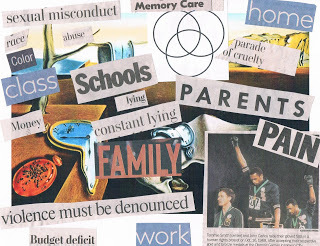The Persistence of Memoirs and Venn Diagrams of Identity

There's some thematic overlap in these lives lived by two very different men on different continents.
The Life and Times of a Very British Man by Kamal Ahmed
https://mediadiversified.org/2018/10/28/the-life-and-times-of-a-very-british-man-by-kamal-ahmed-cardyn-brooks-reviews/
Heavy, An American Memoir by Kiese Laymon Scribner October 16, 2018 non-fiction literature
This intimate mosaic of a complicated, messy life rendered in four parts is as emotionally substantive as it is viscerally grueling. On page 6 when the author asks his grandmother “…whether she minded if we talked about words, memory, emergencies, weight, and sexual violence in our family,” he’s warning readers as well.
Born in Jackson, Mississippi in the mid-1970s to college undergrads in economically impoverished circumstances, Kiese Laymon eventually earned a tenured position at Vassar, an impressive accomplishment made more so by the details of all of the obstacles, setbacks, and dangers he overcame. Plus, getting there signified reaching only one of several peaks in a seemingly endless range of professional and personal mountains to conquer.
Often directly addressing his mother or his grandmother establishes a conversational tone and pace consistent with the sanctity of a secular confessional. Heavy is massive in its emotional scope of revelatory explorations into the weight of words as inflexible, unyielding definitions; as labels, stereotypes, insults, low and negative expectations, sick secrets, past traumas, rigid social class stratification, institutionalized racism, misogyny, and homophobia, post-traumatic stress, addiction, memories. That enormous weight compresses an individual’s personal space and their room to breathe freely. It can narrow their focus and limit the scope of their vision, which probably contributes to the frequency of blanket statements about black folks and white folks, all and every American. Imperfect, fallible, dedicated teachers like the author’s mom and the author strive tirelessly to lighten that load to “give their students permission to be loving and excellent.” [pg. 180]
Examples of linguistic code switching relative to audience, situation and/or the speaker’s motives run throughout K.L.’s development and are presented as a reclaiming of elements of black culture that have been distorted in ways similar to black people who study and collect Negrobilia.
Variations on the phrase, “laughed and laughed until she/he/they didn’t” reinforce the use of humor as a coping strategy as significantly more effective than those suggested by the well-intentioned yet clueless counselor the author and his mom visit once. K.L.’s struggles highlight the long overdue need for resources like the Boris Lawrence Henson Foundation that focus specifically on the mental health needs of black people.
Heavy packs in the consecutive gut punches of Sellout by Paul Beatty with the physical awareness of the body found in Roxane Gay’s Hungerand the connection of violent corporal punishment with distortions in a person’s sexuality as discussed by AnnaLynne McCord (years ago). This beautifully composed memoir echoes the aching longing of multiple generations of unacknowledged, untreated wounds of the body, mind, and spirit.
Published on November 03, 2018 11:18
No comments have been added yet.



